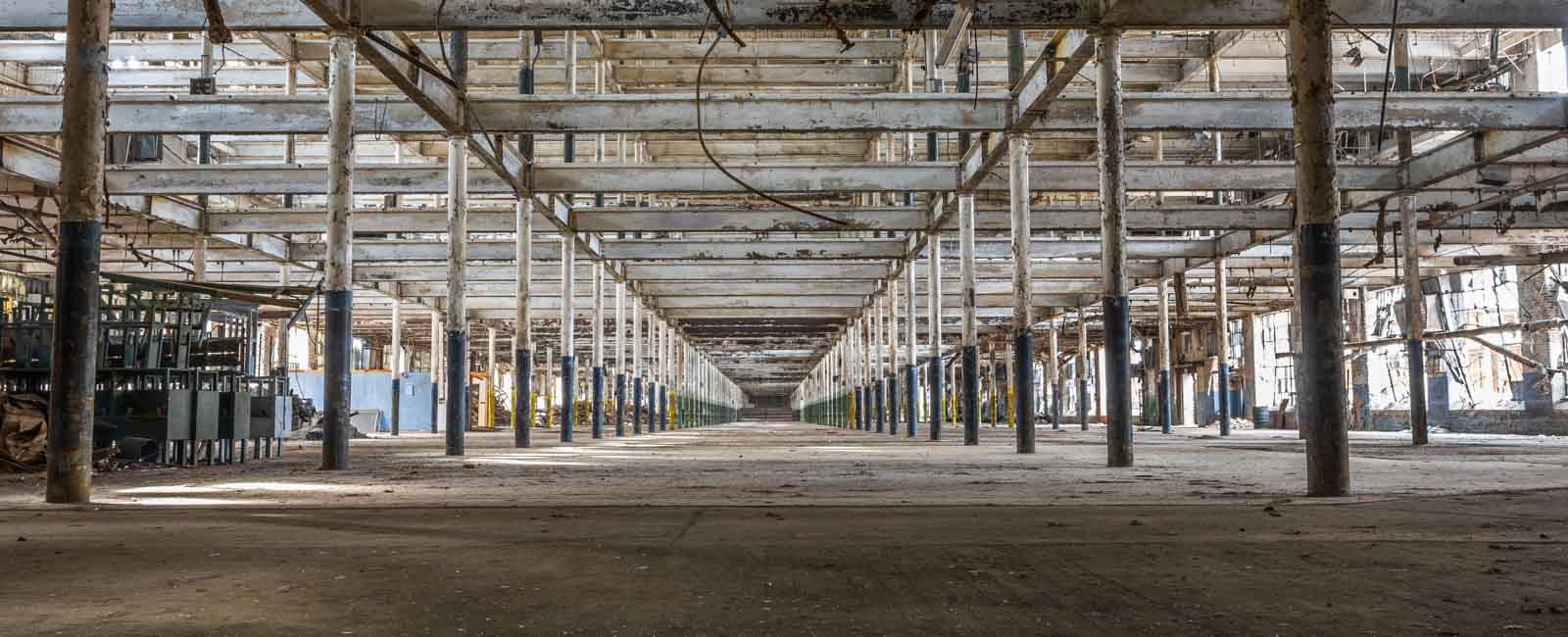

Investment Real Estate Guide
Understanding Investment Real Estate - Cash Flow, Financing, & Cap Rates.
Your first step…
Over the many years that we've been serving real estate investors, two of the most asked questions have been, "How Do I Get Started in Real Estate Investing?" and "How does the Investment Real Estate Financing Process Work?

There isn't any simple answer that will work for everyone.
We've built this guide to help simplify the process of figuring out how you can get started. Of course, this guide is not an all-encompassing "how-to" manual about every aspect of investing in real estate, but a general overview of how you can accomplish your investment real estate goals. We'll review in this real estate investment guide:
- What is Investment Real Estate?
- Why Invest in Real Estate?
- Niche Investing – Building Your Domain Expertise
- What is the financing process?

What is Investment Real Estate?
This real estate investment guide delves deeper into the nuances of what real estate investing is; It is real estate that is acquired for the purpose of generating income. Commonly this is through rental/lease income or value creating development activities. It can be broken down into these common purpose codes:
Agricultural
Agricultural investment real estate is farm land that is leased out to farmers. Often on a per acreage basis with cash rent paid in semiannual installments in the spring and fall.
Retail
Retail investment real estate are properties that are used for the marketing and selling of consumer goods and services. We’ve all seen retail strip centers, shopping malls, and big box stores. These would all fall into the category of retail properties.
Multifamily
Multifamily is a building or structure that is designed to house five or more different families in separate housing units.
1-4 Family or Investor Owned Residential Real Estate
We define Investor Owned Residential Real Estate as single family rental homes, duplexes, triplexes, and quads that hold up to four separate housing units in the building or structure.
Office
A structure used primarily for the conduct of business relating to administration, clerical services, consulting, and other client services not related to retail sales. Office buildings can hold single or multiple firms.
Industrial/Warehouse
A warehouse is a commercial building for storage of goods. Generally, the buildings are rated by clearing heights and square footage. Warehouses are used by manufacturers, importers, exporters, wholesalers, transport businesses, customs, etc.
Development / Construction
Development is land that will either be developed for single family, multifamily or commercial use. Construction would both the development of the land into the final development or completion of real estate buildings for sale or lease. Generally income is derived from the completion and sale of the development, completed building/condos/homes or the project is converted to other classifications as defined below.

Why Invest in Real Estate?
With the background on different types of real estate, why invest in it? What makes Investment Real Estate attractive for an investor? There are certainly many different investment options available. Investing in real estate is commonly because the investor is seeking one or several of the following:
- Price & Rental Income Appreciation
- Cash Flow
- Depreciation / Other Potential Tax Benefits
- Leverage
According to the National Council of Real Estate Investment Fiduciaries over the 10 year period 2000-2010, commercial real estate returned an average of *8.4%.
*Please note that this is third party information. Security Bank & Trust Co. explicitly does not make any recommendations for investments and doesn’t provide investment advice. We are sharing this for informational purposes.
These four levers play well together and can drive additional returns for investment real estate. As with most investments, paying a fair market or a slight bargain on an investment property is the best way to get started in an investment and if you can match that with a great location, your will be off to a great start. It’s important to keep these in mind as you research and make your investments. A good location may cost more but will likely be more stable over the long-term and generally less susceptible to market changes. After closing, consider these four factors, purchase price, and location work together to drive both your cash on cash investment returns and overall equity returns on an investment in the following ways:
Long-term appreciation and equity build
Investment real estate produce positive cash flow each month while also building equity. Consider that every mortgage payment you make is done with the proceeds from your tenant’s rent. It’s nice when essentially the money being used to pay off your mortgage is somebody else’s. This coupled with appreciation of the actual real estate (think inflation) is among the core principles of real estate investing.
Leveraging capital to increase returns
Commercial real estate is an asset class that allows investors to put 20 or 25 percent of a purchase price down and leverage the balance of the purchase with a loan. Using leverage to buy a larger project that you could use if it was not leveraged, it a great way to increase returns. It also has the ability to negatively impact returns if your real estate investment does not work as planned so use it wisely.
Depreciation and Other Tax Deductions
Real estate investors have access to a number of tax deductions and opportunities that tax accountants are well versed in. Whether an active investor or passive investor, it is wise to work with an experienced and knowledgeable account. Some of these include:
- Interest paid on the mortgage
- Depreciation, including accelerated depreciation opportunities
- Operating Expenses
- Business related travel costs
- 1031 Tax Free Exchanges
Probably the best functional benefit, is that as you pay down your investment real estate and the value appreciates, you can access this capital tax free through refinancing the property. Said in another way, as your tenant(s) provide the cash flow to reduce debt and build equity in your property, in time, you have the opportunity to use this equity to reinvest in the existing property or to acquire additional properties; further building your cash flow and investment portfolio.
Download the Investment Real Estate Guide
Niche Investing – Build your domain of expertise
Over the years, we have seen many types and forms of real estate investing. What we have learned is that the most successful investors build a niche in a certain type of real estate investing. They specialize in an area, a type of investment real estate, or a process of investment.
Here are some examples of common domains of expertise:
1-4 Family or Investor Owned Residential Real Estate
Perhaps the most common investments for most first time investors are 1-4 family rental properties. The primary reason is because an investor can use the secondary market as a resource for long-term fixed rate financing up to 10 properties and these types of properties are relatively easy to rent, easy to sell, and easy to finance. However, the drawbacks include limited diversity in rent stream and higher maintenance and management costs per unit.
We see a lot of local investors who may focus on these rentals in certain submarkets. For instance, perhaps they are student housing rentals around the University of Minnesota or University of St. Thomas. Maybe they are housing in certain cities that the investor knows well and can concentrate their rental management and move quickly on for new purchases.
Security Bank & Trust Co. has extensive experience in financing Investor Owned Residential Real Estate so if this is an area of focus for you, please give us a call.
Multifamily
Multifamily is another a focal point of many investors around the Twin Cities Metro Area. Perhaps they look at number of units, age, quality or location of the building. Understanding the rental rates and expense attributes provides great insight into your ability to make your real estate investment a success.
Rehabilitation – Value Add Opportunities
There are investors that focus on rehab, developing or creating other value add opportunities within a real estate type and area. Some are called flippers, others developers, but the concept is the same. Finding opportunity to improve an existing investment real estate property to meet new demand or to reach new potential income sources that were not otherwise reachable under the property’s existing condition. We’ve helped over the years all types and enjoy seeing the before and after of the projects.
Triple Net Leased Properties
Probably the most common passive real estate vehicle. Triple net leased properties are where the tenant is responsible for the ongoing expenses of the property, including real estate, taxes, building insurance, and maintenance, in addition to paying the rent and utilities.
Commercial Real Estate
Income producing commercial real estate like office, industrial and/or retail investments can also be a focused niche for a real estate investor. Often times located in a specific location that the borrower knows well, this investment real estate niche often provides good cash flow and consistent payments. However, keep in mind that it may carry much longer holding periods during times of vacancies and provide more limited liquidity options. Commercial property can potentially sit empty for many months or even years.

What is the financing process?
The financing process for an investment real estate transaction will generally take between three and six weeks from start to finish. This allows time for the bank to complete underwriting of the property, borrower, and to receive a third party appraisal of the property. At Security Bank, we work to make the loan process efficient, dependable and customized to your business's needs. It’s important that communication remains open and fluid to streamline the process.
Download the Investment Real Estate Guide
Key items to think about when preparing your application:
Project Overview
Organize a short executive summary about the property, plans for the property, and the ownership structure. Generally this will include data on the property (SF, address, other building facts), copies of any leases, and personal financial statements and tax returns of the borrower and/or guarantors.
Net Operating Income (NOI)
Calculated as the cash flow available to service debt on the investment property. It generally is the rental income less operating expenses before interest, income taxes, and depreciation and amortization.
Debt Service Coverage Ratio
Calculated as NOI divided by Mortgage Payments a bank will look at this as the borrower’s capacity to repay the loan and will expect to see a coverage ratio above 1.20X on an investment real estate transaction.
Capitalization Rate
Calculated as the net operating income divided by the purchase price of the property. It demonstrates what the investor could expect to earn if they were to purchase the property with all cash.
Review the capitalization rate in comparison to historical periods. Cap rates can fluctuate with the economy and interest rates. It’s important to be comfortable with where rates are and where you may expect them to be as it will impact the ability to leverage the property and your overall investment risk profile.
Loan to Value
Calculated as the loan amount divided by the appraised value. It’s usually expected that the loan to value will be 80% or lower on a commercial real estate purchase. The result will be that the borrower will put down the lessor of 80% of the value or purchase price on top of any closing costs at closing.
The financing process for an investment real estate transaction should be efficient and communication should remain open throughout. The more open and fluid the communication, the better the bank can customize the solution and work through any complicating factors that may arise in the underwriting process.
Thanks for reading our Investment Real Estate Guide. Feel free to stop in, give us a call, or send us a message. We make it easy to bank with us – get started today!
Maneuvering through the business loan process can be time consuming, and the uncertainty can be nerve racking. It's best mitigated by proper preparation and working with a knowledgeable and creative financial institution. At Security Bank & Trust Co., we work to limit the complexity in its financing. Make an appointment today to see how Security is Investing in you.
Talk With a Lender
